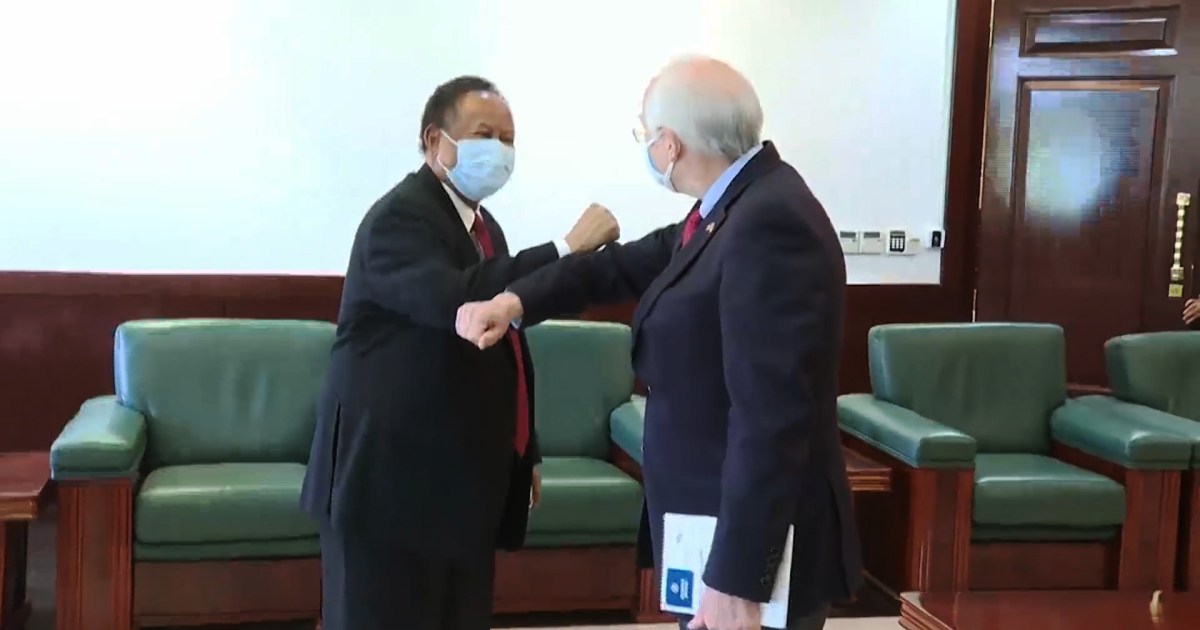The US and European envoys to Sudan will continue their talks today, Wednesday, in Khartoum regarding the negotiations of the Ethiopian Renaissance Dam, a day after Sudan announced that the second filling of the dam will weaken the capabilities of the Sudanese power stations.
The US special envoy Donald Booth and the representative of the European Union in Sudan, Robert Van Den Dole, will meet today, a member of the Sudanese Sovereignty Council, Muhammad Al-Taishi, Minister of Interior Ezz El-Din Al-Sheikh, and the head of the Peace Commission, Suleiman Al-Dobilo, to discuss the Renaissance Dam negotiations and the tension on the borders with Ethiopia.
Yesterday, Tuesday, the two envoys discussed with Sudanese Prime Minister Abdullah Hamdok the peace process, support for democratic transformation in the country, the Renaissance Dam file, the impact of Ethiopia's unilateral filling of the dam on electricity generation in Sudan, as well as the military tensions on the borders of Sudan and Ethiopia.
Timing and Effects
Sudanese Minister of Energy and Oil, Jadin Ali Obaid, said that the timing of the second phase of filling the Renaissance Dam from June to August will lead to a drop in the water level to the lowest level, which will affect the stations that produce electric power through hydro-generation in the country.
He pointed out "the importance of reaching an agreement between all parties before Ethiopia decides to fill the dam unilaterally."
For his part, the Undersecretary for the Electricity Sector in Sudan, Khairy Abdul Rahman, said that the appropriate time for Sudan to fill the second filling of the dam should start from next September.
He added that if Ethiopia decides to implement at the time you mentioned, without an agreement between the two countries, this will double the suffering in the electricity sector in Sudan due to the low water level.
Find solutions
For his part, the US envoy expressed his desire to share information to reach diplomatic solutions and build confidence between the parties regarding the dispute over the Renaissance Dam.
The US envoy inquired about the timing that is appropriate with Sudan in order to implement the second phase of the filling of the dam, and the possibility of converging views on this issue.
He affirmed his endeavor to reach satisfactory agreements for all parties, and to support Sudan with regard to democratic transition during the transitional period.
Addis Ababa insists on the second filling of the dam next July, even if no agreement is reached on it, while Cairo and Khartoum adhere to an agreement that guarantees their annual share of the Nile water, which is 55.5 billion cubic meters and 18.5 billion cubic meters, respectively.
Ethiopia rejects the quadripartite international mediation proposed by Sudan last February, and Egypt supports it, and includes the United States, the European and African Union, and the United Nations, to solve the stalled negotiations on the Renaissance Dam.

